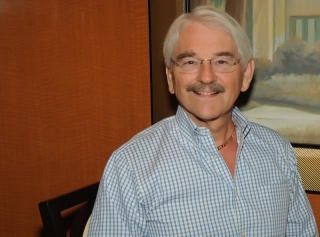This month, we will start a new series on civility. It has become an increasingly important topic as we witness both the decrease in kindness and graciousness in public life and also the wide range of negative comments made about individuals and groups. It used to be true that we could count on more friendly discourse about important issues and less ad personam or attacks on individuals. This is not necessarily true anymore. The increased violence in our public life means we must work with students to help them become professionals in our industry. We need to consider ways to enhance civility and teach strategies for reducing and eliminating uncivil moments. This month, we will discuss the rise of incivility and ways to think about civility. In next month’s Mayo Clinic, we will review strategies to practice and promote civility.
Causes of Lack of Civility
For many reasons we have lost the friendly and respectful ways we used to communicate with others. The prevalence of Twitter, texting, and email has deprived us of the non-verbal clues in conversations between two or more people in the same room. If you think about it, most of us don’t know how to write an email with nuance, subtlety, or metaphor. In fact, using only text and email has limited our students’ abilities to recognize and honor communication with multiple meanings and a variety of tones.
We used to write notes with Dear xxx and end them with a salutation before we typed our name. However, most emails no longer carry these pleasant greetings. Look at most of the emails you have received over the last few days and notice how many don’t use your name or indicate the place where you live or work.
Definitions of Civility
There are many civility definitions. Some of the most common include notions of respect for others, recognition of the other person as an individual of worth, the value of dignity and integrity in communication, and kindness to others. One of the most commonly accepted definitions was developed by the co-founder of The Johns Hopkins University Civility Project:
“Civility means a great deal more than just being nice to one another. It is complex and encompasses learning how to connect successfully and live well with others, developing thoughtfulness, and fostering effective self-expression and communication. Civility includes courtesy, politeness, mutual respect, fairness, good manners, as well as a matter of good health. Taking an active interest in the well-being of our community and concern for the health of our society is also involved in civility.” P. M. Forni, Choosing Civility: The Twenty-Five Rules of Considerate Conduct
It is a central element of professionalism, something we need to teach everyday.
Restoring Civility in Discussions
There are many suggestions for improving civility and even restoring it in situations like public discourse and especially classrooms. Some of the common proposals include:
- listening carefully with the heart to other people
- listening to what people are saying beneath their words
- recognizing our own frames of reference which limit what we see and hear
- recognizing the dignity and otherness of the people to whom we talk
By showing kindness and generosity of spirit to others, we can encourage civility in both our private and public lives.
Summary
I hope this information expands your understanding of civility and its importance. Next month, we will discuss strategies to encourage civility in our classrooms and ways to increase civility in our teaching.
If you have suggestions for other topics or teaching practices you want discussed, send them to me at This email address is being protected from spambots. You need JavaScript enabled to view it., and I will include them in future Mayo Clinics.
Dr. Fred Mayo, CHE, CHT, is retired as a clinical professor of hotel and tourism management at New York University. As principal of Mayo Consulting Services, he continues to teach around the globe and is a regular presenter at CAFÉ events nationwide.
